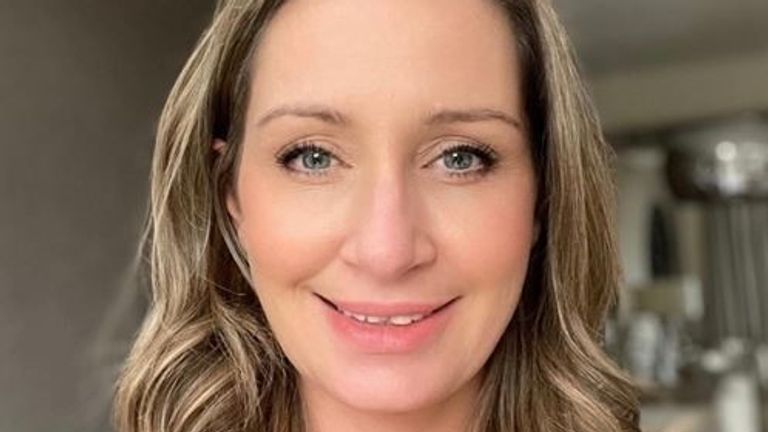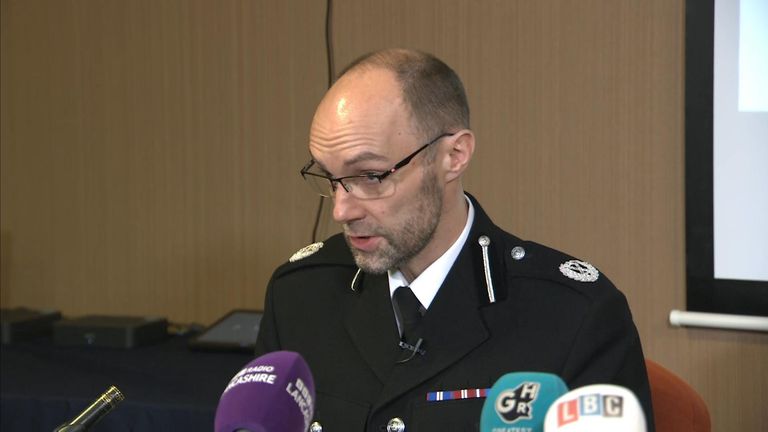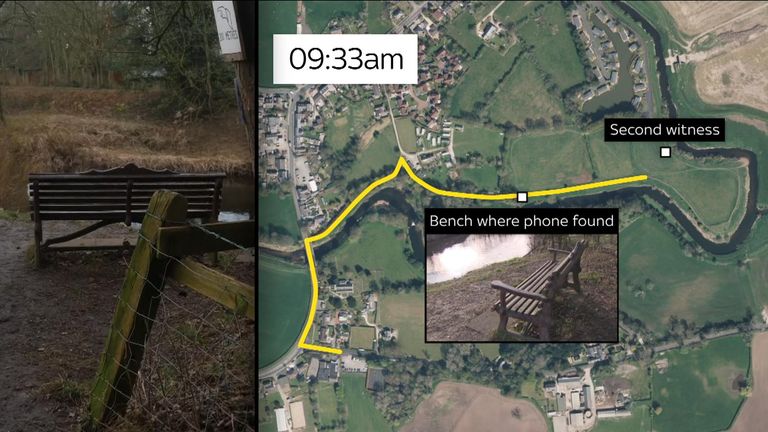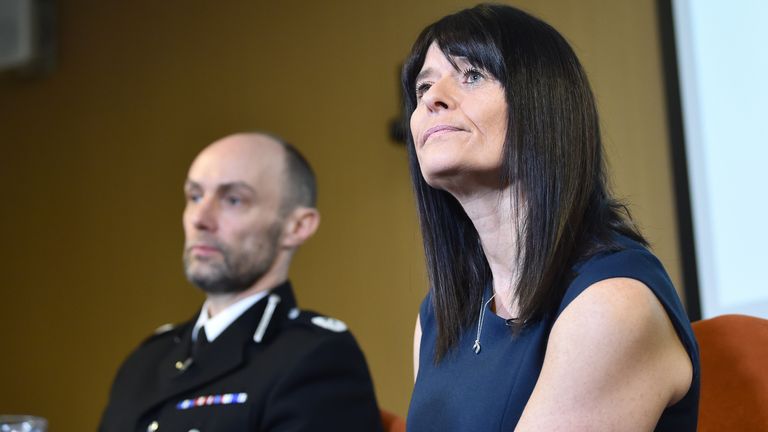
Missing mother-of-two Nicola Bulley had suffered “significant issues with alcohol” in the past, Lancashire Police said.
Police previously said Ms Bulley had “specific vulnerabilities” that made her a “high-risk” missing person – but did not specify what those were.
A subsequent statement by Lancashire Police said: “Nicola had in the past suffered with some significant issues with alcohol which were brought on by her ongoing struggles with the menopause and that these struggles had resurfaced over recent months.
“This caused some real challenges for Paul and the family,” the force added in a reference to Ms Bulley’s partner, Paul Ansell.
As it happened – police update on Nicola Bulley’s disappearance
The force said a response car staffed by police and health professionals “attended a report of concern for welfare” at Ms Bulley’s home on 10 January.
“No one has been arrested in relation to this incident, but it is being investigated,” Lancashire Police said.
Ms Bulley, 45, was last seen on Friday 27 January while walking her dog Willow on a footpath by the River Wyre.
Read more:
Timeline – what were Nicola Bulley’s last movements?
Community ‘in shock’ over dog walker’s disappearance
How local knowledge could help despite ‘toxic’ interest
‘Unusual step’
Police acknowledged it was an unusual move to divulge such personal information about a missing person, but said they wanted to explain what they meant by “vulnerabilities”.
The statement said: “It is an unusual step for us to take to go into this level of detail about someone’s private life, but we felt it was important to clarify what we meant when we talked about vulnerabilities to avoid any further speculation or misinterpretation.
“We have explained to Nicola’s family why we have released this further information and we would ask that their privacy is respected at this difficult time.”
‘False information, accusation and rumours’
Lancashire Police has been criticised for quickly ruling out foul play when Ms Bulley vanished after dropping off her daughters, aged six and nine, at school.
She was last seen at 9.10am taking her usual route alongside the River Wyre with her springer spaniel.
Her phone, which was still connected to a work call for her job as a mortgage adviser, was found just over 20 minutes later on a bench overlooking the riverbank, with her dog running loose.
Since her disappearance huge public and media interest has resulted in what police described as “false information, accusations and rumours” along with an “unprecedented” search of both the River Wyre downstream to Morecambe Bay and miles of neighbouring farmland.
Detectives keeping an open mind
Speaking at a news conference earlier, senior investigating officer Detective Superintendent Rebecca Smith and Assistant Chief Constable Peter Lawson said based on intelligence received during the investigation so far “there is not a single piece of information or evidence to suggest there was any third party involvement”.
Ms Smith said it was still her “main working hypothesis” Ms Bulley fell into the River Wyre, adding that detectives are keeping an open mind about the mother-of-two’s disappearance.
Their two other hypotheses are there could have been third-party involvement and that she could have voluntarily left the area.
‘Unprecedented hell’
Police have spoken to a number of witnesses who saw Ms Bulley before she disappeared.
Around a week and a half after she was last seen police said they were looking at 500 pieces of “active information”.
They focused their investigation on a crucial 10-minute window when her movements are unaccounted for – from 9.10am to 9.20am.
However, her partner, Mr Ansell, doubts the wisdom of focusing on the river search and said: “Personally, I am 100% convinced it’s not the river, that’s my opinion.”
He said he believes “something happened” on the day of his partner’s disappearance.
“There has to be a way to find out what happened, there has to be. You cannot… you cannot walk your dog down a river and just vanish into thin air,” he said.
Mr Ansell said her family is going through “unprecedented hell” but would “never give up” hope of finding her.













